A new French language website called BD Egalite (more or less “comics equality”) has launched to address rampant sexism in the French comics market. The charter has been posted in English with a few calls for action including this:

Given that « masculine comics » have never been narrowly defined or limited, it is degrading for women authors to be typecast as creating « female comics ». If such a tag stereotypes our work or thought process, then we, female comics creators, don’t recognize ourselves in it. Indeed, as much as our male peers are not obliged to refer to their « masculinity » when they design something, we aren’t obliged to refer to our « femininity ».¹
The list of about 100 creators who have signed up for this includes a who’s who of well known Female cartoonists including Marguerite Abouet, Peggy Adam, Penelope Bagieu, Julie Delporte, Julie Doucet, Annie Goetzinger, Julie Maroh, Anouck Ricard, Marjane Satrapi, Marguerite Sauvage and Georgia Webber, to name those perhaps best known here in the US. It’s a pretty comprehensive list spanning many comics eras and genres—it would be hard to imagine a comparable group of female US creators banding together, but when you read the complaints of the members on a Testimonials page, it begins to sound like the French comics industry is in an even more primitively regressive boys club than the US one.
The stories are written in French so the Google translate makes them a bit hard to read (Paging Xavier Lancel!!!) but the general idea is that these creators—so various and distinct—are all lumped into the same category, constantly asked “What’s it like to be a women in comics?” and treated like sex objects when applying for work.
Virginia Augustin writes (in translation)
“It’s not very feminine theme” or “Yeah, but you is not the same”, “Machin will not believe that it was a girl that had designed,” “It’s not a chick drawing” or “It’s obvious that this is a chick drawing.”
Small reflection of a writer with whom I could work at our first meeting: “I see yours is bigger and uglier.” Constructive, is it not?
Jeanne Puchol writes of being a guest at a festival, and a panel for the female guests (son familiar) suggested that women didn’t become cartoonists because most comics were for boys, and readers had to identify with the characters so women wouldn’t relate to Tintin One of the panelists wondered why then a strip starring a dog—Gai-Muron, which ran in Pif—could be popular which “earned us this wonderful witticism uttered by a deputy mayor of the city, just to make the story even more enlightening: “Aaaaah but then, you are all bitches? ”
Mathilde Ramadier tells more stories about harassment and being ignored, and “Mais elle m’a donné l’occasion de m’interroger sur ce qu’est le mépris, et l’ignorance ordinaire.” — “contempt and ordinary ignorance”
This is a pretty powerful resource page that speaks to endless frustration. And while the familiar narrative here in the US about Franco-Belgian comics suggests that (as in the narrative about US comics) women only began drawing them a few years ago, completely overlooking the long careers of such amazing artists as Annie Goetzinger (above.) The internet is horrible in may ways, but giving a voice to those traditionally marginalized is perhaps its one great virtue.


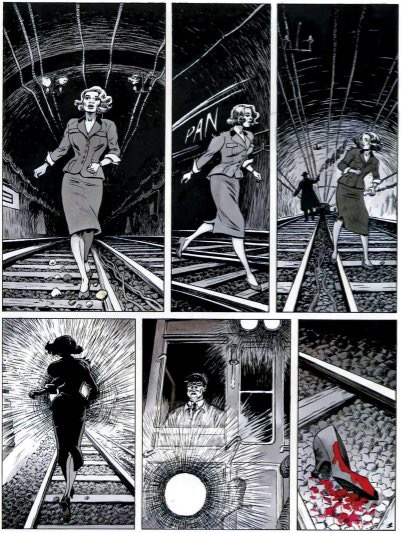
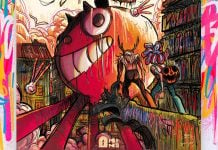
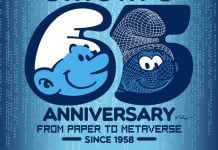
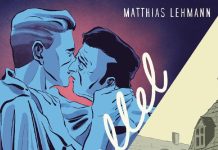
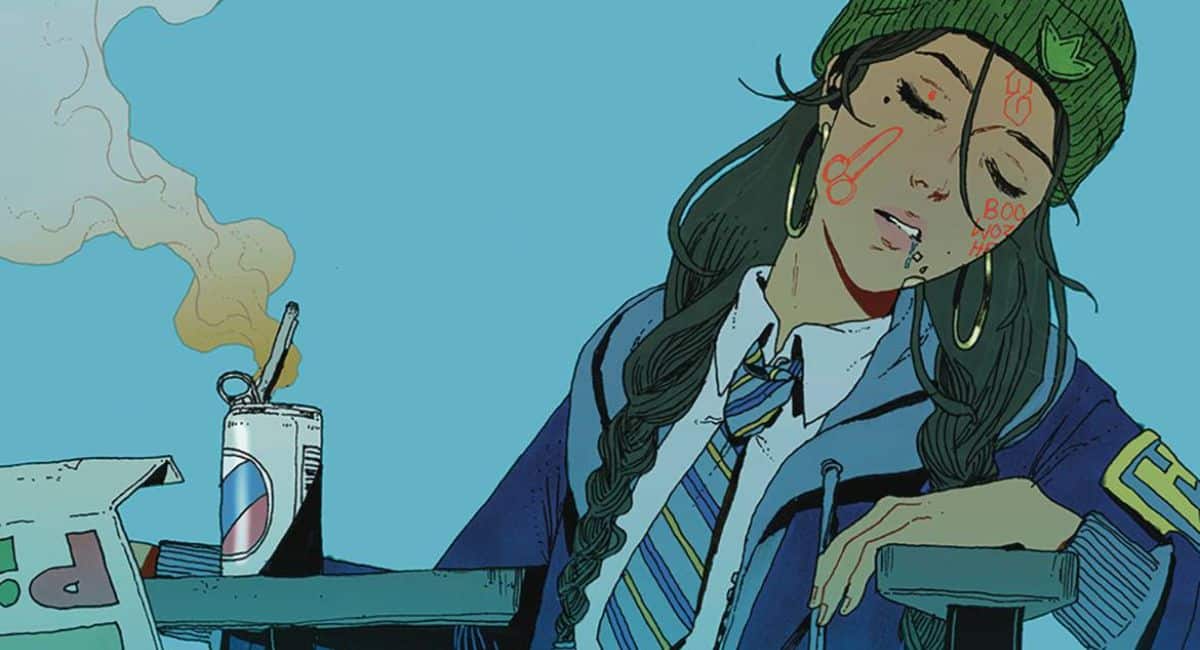

Here is a more accurate translation of what Virginia Augustin had to say: (the automatic translation you got was okay, except for the last part)
” This is not a very feminine subject” or “Yes, but it’s different for you” or “This guy didn’t believe this was drawn by a girl”, “This is not a chick drawing” or “It’s obviously a chick drawing”.
Here is a small thought a writer I will possibly work with said at our first encounter: “I thought you would be taller and uglier”. Constructive, isn’t it ?
Related: The Crocodiles Project
http://www.lelombard.com/actualites-news-bd/decouvrez-projet-crocodiles,3875.html#&panel1-1
There’s also a Tumblr.
La carte de victime est jouée.
Now, you will perhaps think again before dreaming of France as a the perfect comics market! :p
Comments are closed.